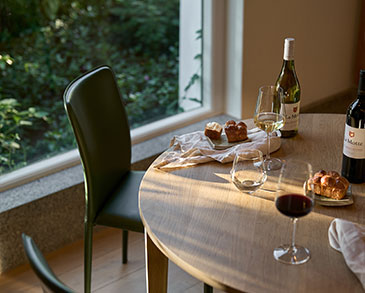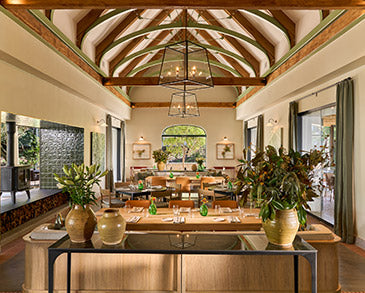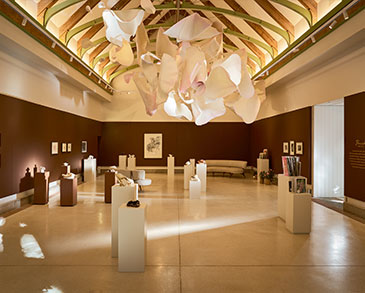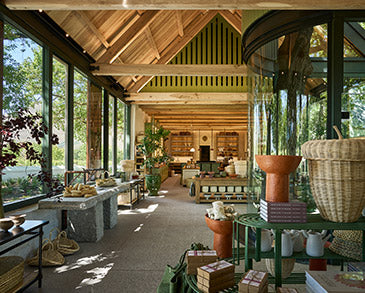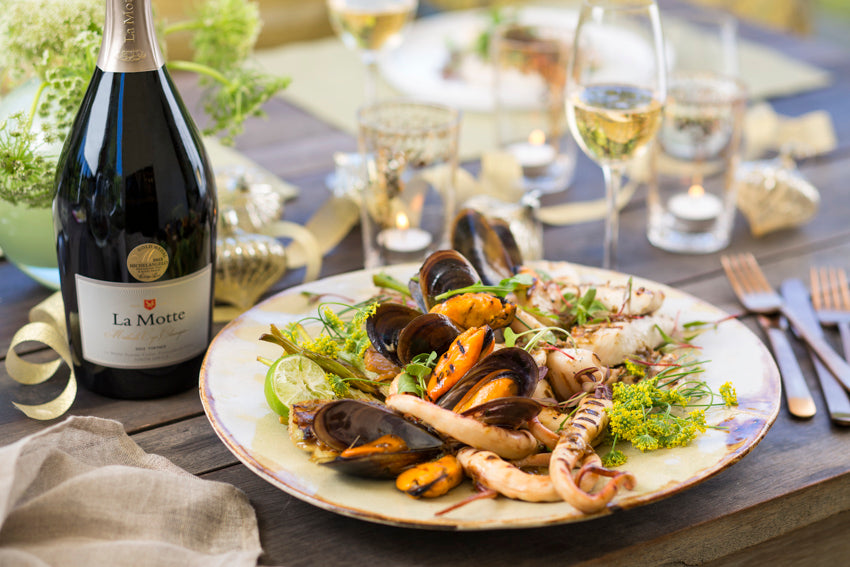
Seafood was regularly collected by the indigenous people and when the first European pioneers arrived at the Cape, they too were fortunate in being able to catch an abundance of fish in the seas along the Cape coast. Bountiful catches of steenbras, kingklip, harder (mullet), elf (shad), mackerel and snoek were recorded by Jan van Riebeeck. Octopus, crayfish, periwinkle, oysters, abalone and sea urchins supplemented their diet. Wild herbs and plants such as fennel were also important substances of daily cooking. Limes and lemons, critical in keeping scurvy at bay, were often salted to last on the long sea voyages and, as such, became popular ingredients in various dishes and salads.
With this recipe, we celebrate old Cape ingredients in a modern and versatile way. Perfect as a shared starter to a summer's meal, this seafood salad is also a most fitting celebratory dish when served with well-chilled La Motte Méthode Cap Classique.
Recipe for seafood salad
Serves 6
500 g calamari tubes, cleaned
1 kg octopus tentacles, cleaned
2 kg mussels, cleaned and steamed
1 kg white fish, e.g. angel fish, cleaned and pin-boned
Method
For the octopus: Place octopus in deep sauce-pot and add 3 litres of fish stock, 1 bottle of white wine, 100 ml good quality olive oil, zest of 2 lemons and a bunch of fresh thyme. Bring to a boil, lower the heat to a slow simmer and cook until tender, about 3 – 4 hours.
For the mussels: Once the mussels have been cleaned and their beards have been removed, they can be steamed. Place a mixture of chopped onion, fennel bulbs, garlic, celery and leeks into a deep sauce-pot and cook over high heat. Add mussels and half a bottle of white wine, cover with a tight-fitting lid and steam for 5 minutes. Remove from heat and strain off cooking liquid (reserve liquid to cook fennel bulbs). Remove half the mussels from their shells; keep the others in the shells. Discard any mussels that did not open in the steaming process.
Once all the seafood has been prepared, toss with good quality olive oil, salt and white pepper and a squeeze of lime juice.
Grill on a hot griddle pan until nicely seared and cooked. The mussels can be done separately and need a few seconds on the grill to heat up.
Recipe for salad
6 small fennel bulbs
60 g unsalted butter
30 ml olive oil
2 tablespoons castor sugar
2 teaspoons fennel seeds
2 garlic cloves, finely chopped
Reserved mussel liquid
Zest and juice of 6 limes
50 g fresh fennel, roughly chopped
Maldon salt and ground white pepper to taste
Additional limes and olive oil to finish
Method
Prepare the fennel bulbs by cutting off the bottoms of the roots and the leafy front parts.
Remove any tough or brown outer layers, making sure that the base holds.
Cut each fennel bulb length-ways into thick slices.
Heat a saucepan and place the olive oil and half the butter into it. Once the butter starts to brown, add the fennel (to brown the slices nicely, this should be done over high heat).
Turn the slices to brown evenly (do not over crowd the pan, and fry the fennel slices in batches).
Add the sugar, fennel seeds, lime zest, garlic, salt and pepper to the pan and caramelise.
Return the fennel to the pan with the caramel and toss through, then add a cup of the mussel liquid and some lime-juice and the rest of the butter.
Chef’s note: Place the warm fennel salad on a serving dish and arrange the warm seafood on top of it. Scatter some roughly chopped fresh fennel over the top and drizzle with lime-juice and olive oil.
Wine recommendation: 2020 La Motte Pierneef Sauvignon Blanc, made from cool-climate grapes, offers both freshness and complexity and is the ideal partner to the intense flavours, but light consistency, of this seafood dish. Alternatively, 2017 La Motte Méthode Cap Classique with its fuller character, is an excellent choice to both complement the dish and celebrate the season.


